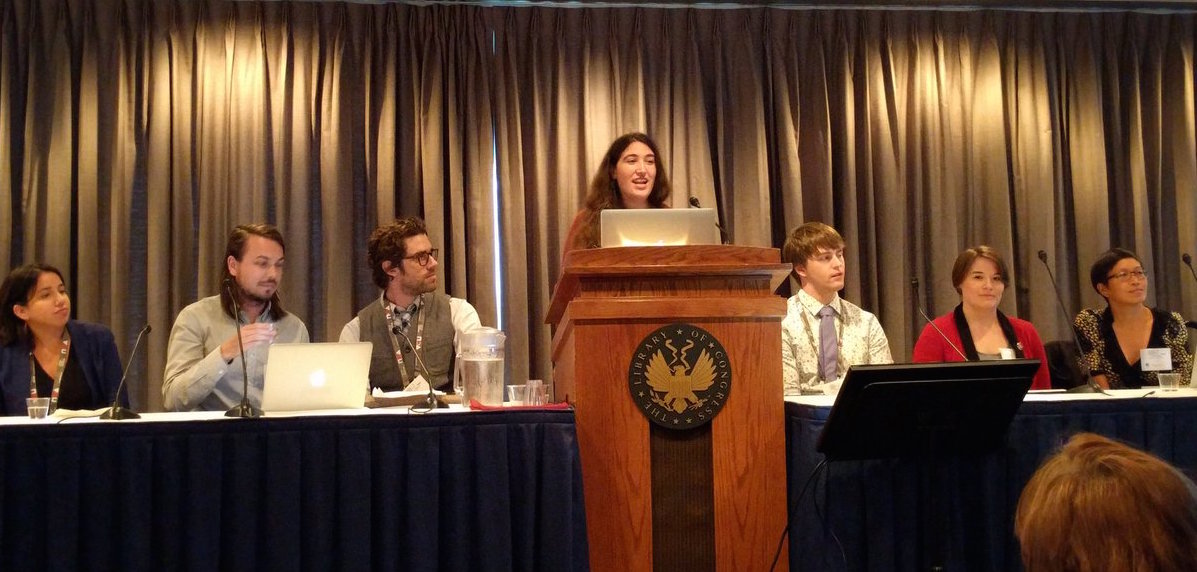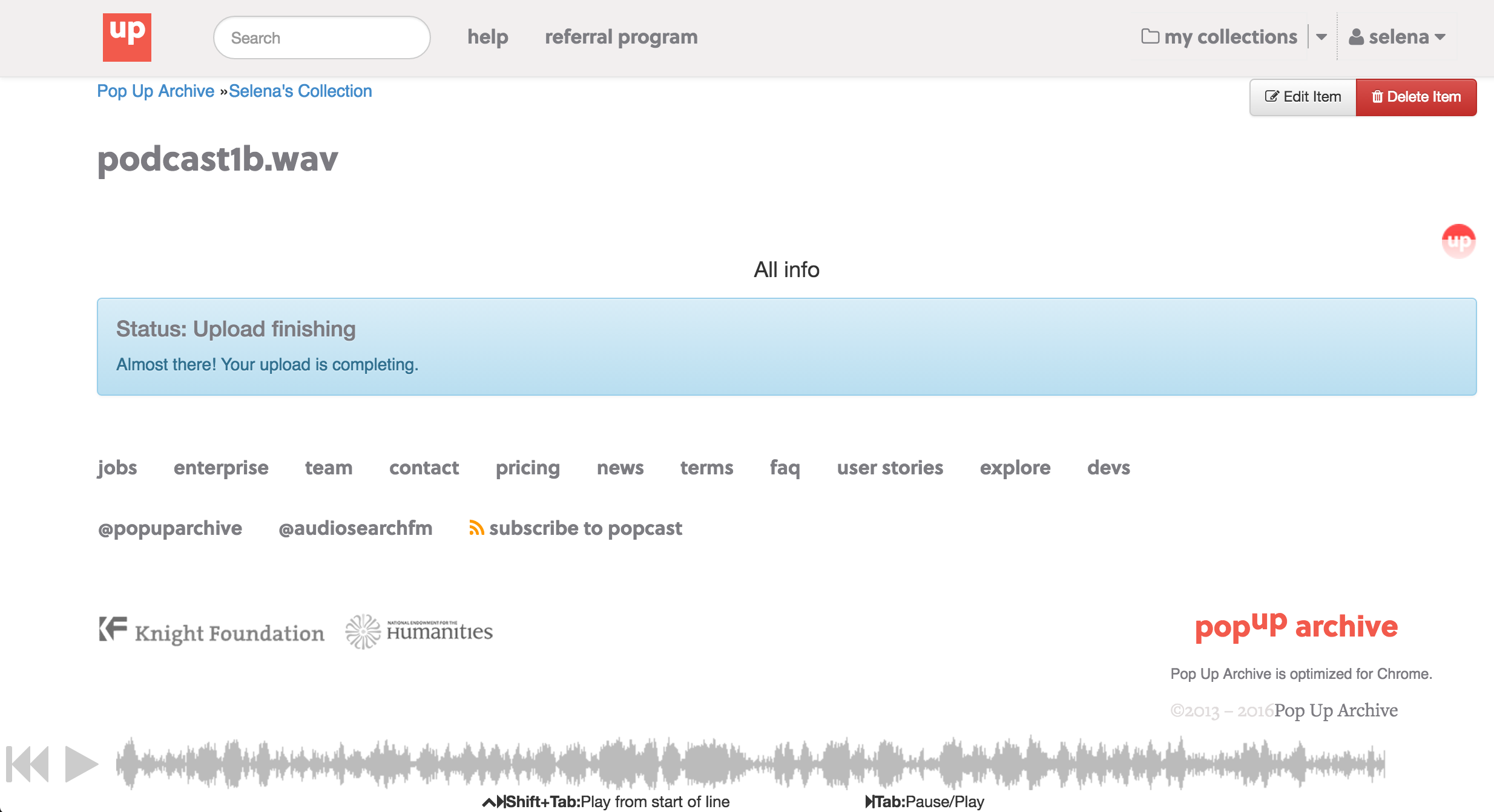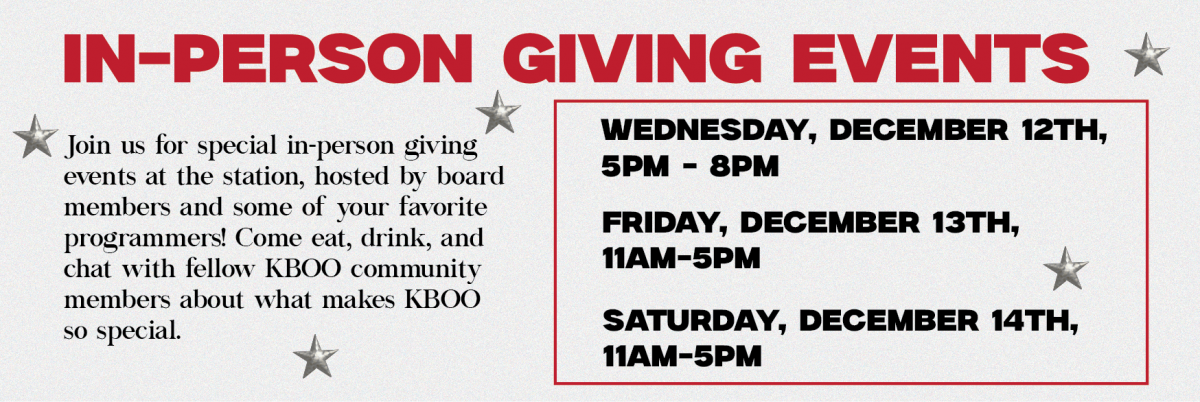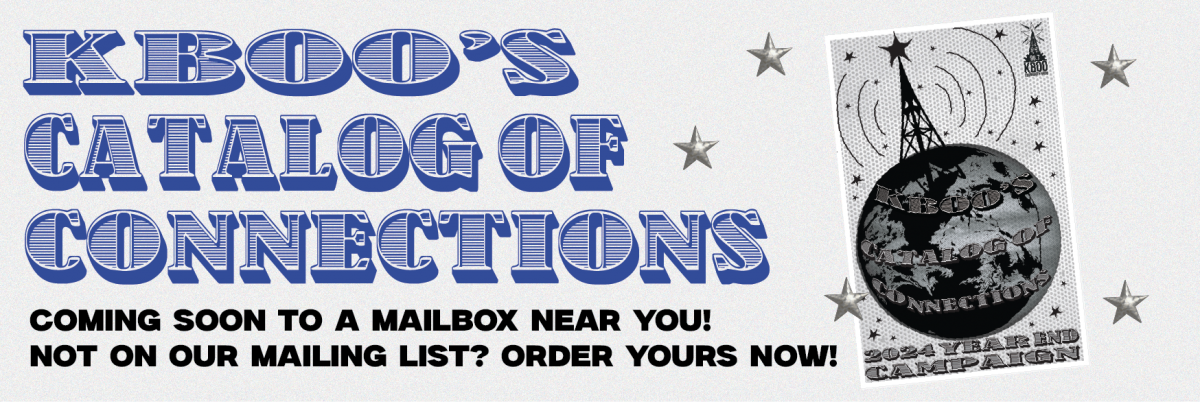Originally published for American Archive of Public Broadcasting National Digital Stewardship Residency.
AAPB NDSR update in podcast form. Day 1 of IASA, the International Association of Sound and Audiovisual Archivists in Washington, D.C. Duration: 00:05:31
*In the audio, I quote directly from resources listed below, namely the Traditional Knowledge paper and the Mukurtu website. See speech to text software comparisons of IBM Watson, Popup Archive, and Trint.com below. 
- http://www.ibm.com/watson/developercloud/speech-to-text.html
- https://www.popuparchive.com/
- https://trint.com/
- http://2016.iasa-web.org/
- http://www.ru.ac.za/ilam/
- http://www.folkways.si.edu/international-library-of-african-music-ilam/smithsonian
- https://blogs.loc.gov/folklife/2015/04/honoring-vernacular-sounds/
- Traditional Knowledge labels: http://bit.ly/2dnfyxQ
- http://mukurtu.org/
- http://www.iasa-web.org/international-bibliography-discographies-worldwide-collaborative-project
- htp://revivethis.org
- http://studsterkel.hyperaud.io/
The original text of my audio:
Hello, this is Selena Chau, AAPB NDSR resident at KBOO Community Radio sharing my next update via a podcast, as suggested by my wonderful colleague Lorena Ramirez-Lopez. I decided to test out IBM Watson as well, which is a speech to text software that was under consideration by my other cohort colleague Tressa Graves. This week, the week of September 26, 2016, we are at IASA, the International Association for Sound and Audiovisual Archives in Washington DC, hosted at the Library of Congress. It’s amazing to be in DC, and I had to walk by the White House during this tumultuous election year, on the same day as the first presidential debate. I commented to a colleague that because archives are guided by the values in our field, our work must continue independent of politics, despite being affected by federal laws, budgets, and policies. This being an international conference, it was interesting to learn of the challenges of archives in other countries and archives representing different communities. Gila Flam spoke about her challenge of creating a national collection of archived music at the National Sound Archive of Israel. Following the establishment of the State of Israel, a deposit law was enacted. The National Library of Israel must collect material published in Israel, including music. Additionally, the governmental mandate is prioritizing popular music, which the archive is doing on it’s own, manually, without help from music distribution platforms. Gila approximates that there are about 500 new songs created and distributed per month. Ideally there can be development of automatic transmission of music files to the national archive but as of yet there is no efficient workflow. Both the International Library of African Music and the Library of Congress talked about repatriation of cultural audio recordings back to the communities, tribes, and cultures that created them. Lee Watkins, from the International Library of African Music, presented on repatriation of Hugh Tracey field recordings. Tracey was an important twentieth century ethnomusicologist who went on recording tours throughout Africa to document African music. He founded the International Library of African Music in 1954 and it is now the greatest repository of African music in the world. In addition to preserving Tracey’s original recordings, it supports contemporary fieldwork. During the Q&A of Lee’s presentation, it was noted that the reception to the recordings is mixed, and that some people harbor feelings of inferiority with the association of old culture and traditions, especially compared to urban development. The Library of Congress talked about many great things in their panel. I was especially interested in learning about the Traditional Knowledge license and label platform. TK labels recognize that large amounts of Indigenous materials are in the public domain, but may be missing information, or may in fact be misused. Traditional knowledge labels ask all new users of this special material to respect Indigenous protocols and to gather, create, and share responsibly and respectfully. TK labels are one way to navigate the sometimes-confusing arena of Indigenous intellectual property rights in an expanding digital landscape as a practical solution that mediates these often-times tense overlapping fields of practice. Another tool in the field of ethnography is Mututu, an open source content management system built with indigenous communities to manage and share digital cultural heritage. The Netherlands institute for sound and vision presented on Re:vive, a remix program initiative that brings public domain or creative commons CC-BY-SA archival audio together with the creative perspectives of local musicians. It reminded me of Philip Glass’ rework album, where Philip asked other music artists to make their own creative takes on his iconic minimalist compositions. In both cases, the collaborators were invited to participate. Philip Glass’ music is still copyrighted, but the RE:VIVE project partners with a record label, makes use of the copious amount of free re-use licensed archival material, and makes compilations available as a free digital download under a Creative Commons Attribution-Share alike license. A conversation with the archivist at WFMT Chicago brought up another related project, the Hyperaudio Studs Terkel. This online platform allows drag and drop remixing using Stud’s daily Chicago radio program audio, and encourages creatives to curate and share their interpretations. The AAPB NDSR cohort presented on the afternoon of Day 1, which was well received and allowed other conference participants the opportunity to identify and approach us at later times in the conference. It was especially fun to present from behind a Library of Congress podium! We talked in general about our projects, having only gotten 2 months into the work, but we reflected positively on the support and professional network we receive from the cohort model, even when we are geographically dispersed.
The audio file partially transcribed by Watson (Watson can be trained):
Other Selina Chow an APB and yes our resident at cable to community radio show my next update via podcast. As suggested by my wonderful colleague Loreena Ramirez the pens. I decided to test out IBM Watson as well which is a speech to text software that was under consideration by me other cohort colleague trusting grieves. This week the week of 9/26/2016 we are at I ASA the international association for sound and audio visual archives in Washington DC hosted at the library of Congress. It's amazing to be in DC and I had to walk with the White House during this tumultuous election year on the same day as the first presidential debate. I commented to another colleague that because the archives are guided by the values in our field our work must continue independent of politics despite being affected by federal laws budgets and policies. This being an international conference it was interesting to learn of the challenges of arcades in other countries and archives are presenting different communities. Get the funds took about her challenge of creating a national collection archives music. At the national sound archive of Israel. Following the establishment of the state of Israel a deposit with law was enacted the library of Israel must collect materials published in Israel including music. Additionally the governmental mandate is prioritizing popular music. Which the archive is doing on its own manually without help from music distribution platforms. You let proximity that there are about 500 new songs created and distributed per month. Ideally they can be development of automatic transmission of music files to the National Archives. But as of yet there is no efficient work flow. Both the international labor and African music. And the library Congress talked about repatriation of cultural audio recordings back to the communities tribes and cultures that created them. The Watkins from the international library of African music presented on repatriation of here Tracy killed recordings. Tracy was an important twentieth century ethnomusicologist who went on recording Taurus throughout Africa. To document African music. He founded international library of African music in 1954 and it is now the greatest repository of African music in the world. In addition to preserving Tracy's own original recordings. The library supports contemporary fieldwork. During that you any of these presentation it was noted that the receptions recordings is mixed. And at some people harbor feelings of inferiority with the association of old culture and traditions. Especially compared to urban development and progress. The library Congress talks about many great things in their panel. But I was especially interested in learning about the traditional knowledge license and they will platform or T. K.. TKA labels recognize that large amounts of indigenous materials are in the public domain but maybe missing information or may in fact be misused. Traditional knowledge labels ask only that users of a special material to respect indigenous protocols and together create and share responsibly and respectfully. TKO labels are one way to navigate the sometimes confusing arena of indigenous intellectual property rights. An expanding digital landscape as a practical solution that mediates these oftentimes tens overlapping fields of practice. Another tool in the field at them ethnography is my good to. An open source content management system does indigenous communities to manage and share digital cultural heritage. The Netherlands institute for sound and vision presented on revise our unix program initiative that brings public domain or creative Commons CCDI essay archival audio together. With the creative perspectives of local musicians. It reminded me of Philip glass's rework album where Phillip asked other music artists to make their own creative takes on his iconic minimalist competitions. In both cases the Clarion's were invited to participate. Philip glass's music is still copyrighted obviously but the revived project instead. You makes use of the copious amounts of free reissue licensed archival material from the are kind. Partners with record label and makes compilations available as free downloads. Under a creative Commons attribution sharealike license.
The audio file transcribed by Popup Archive:
00:00:00 Hello this is Selena Chao APB and DSR residents and Cabu community radio. My next update podcast as suggested by my wonderful colleague Lerena Ramirez Lopez. I decided to test out IAB and Watson as well which is a speech to text software that was under consideration by my other cohort colleague Truscott Greeves this week the week of September 26 2016 we are at Icasa the International Association for a sound and audio visual Archives in Washington D.C. hosted at the Library of Congress. It's amazing to be in D.C. and I had to walk by the White House during this tumultuous election year. On the 00:00:38 same day as the first presidential debate I commented to another colleague that because the archives are guided by the values in our field our work must continue independent of politics despite be effected by federal laws budgets and policies. This being an international conference it was interesting to learn of the challenges of archives in other countries and our close are presenting in different communities. Flams spoke about her challenge of creating a national collection of archives music at the National Sound Archive of Israel following the establishment of the state of Israel a deposit where law was enacted. The library of Israel 00:01:17 must collect materials published in Israel including music. Additionally the governmental mandate is prioritizing popular music which the archive is doing on its own. Manually without help from music distribution platforms that approximates that there are about 500 new songs created and distributed per month. Ideally there can be development of automatic transmission of music files to the National Archive but as of yet there is no efficient workflow both for the International Library of African music and the Library of Congress talked about repatriation of cultural audio recordings back to the communities tribes and 00:01:55 cultures that created them. Lee Watkins from the International Library of African music presented an repatriation of huge Tracy field recordings. Tracey was wasn't important 20th century ethnomusicologist who went on recording tours throughout Africa to document African music. He founded International Library of African music in 1954. And it is now the greatest repository of African music in the world. In addition to preserving Tracy's own original recordings the library supports contemporary fieldwork. During the Q&A of Lee's presentation it was noted that the reception to recordings is 00:02:34 mixed and that some people harbor feelings of inferiority with the association of old culture and traditions especially compared to urban development and progress. The Library of Congress talked about many great things and their panel. But I was especially interested in learning about the traditional knowledge license and legal platform or T.K. Teekay labels recognized that large amounts of indigenous materials are in the public domain. But maybe missing information or may in fact be misused. Traditional all age labels ask all new users of a special material to respect indigenous protocols and to gather create and share 00:03:13 responsibly and respectfully Teekay labels are one way to navigate the sometimes confusing arena of indigenous intellectual property rights in an expanding digital landscape. As a practical solution that mediates these oftentimes tense overlapping fields of practice. Another tool in the field at the ethnography is Mikuru and open source content management system built from indigenous communities to manage and share digital cultural heritage. The Netherlands Institute for sound and vision presented on revive a program initiative that brings public domain or creative commons CCPOA essay. Archival 00:03:51 Audio together with the creative perspectives of local musicians It reminded me of Philip Glass's rework album where Philip asked other music artists to make their own creative takes on his iconic minimalist compositions. In both cases the clairaudience were invited to participate. Philip Glass's music is still copyrighted obviously but the revived project. Instead you makes use of the copious amounts of free reused relicensed archival material from the archive. Partners with record label and makes compilations available as free downloads under a Creative Commons 00:04:29 Attribution share alike license a conversation with the archivist at WFM to Chicago. Brought up another related project. The Hebra audio of Studs Terkel this online platform allows drag and drop remixing using steads daily Chicago radio program audio and encourages Friedan's to curate and share their interpretations. The APB and D-Star cohort presented on the afternoon of day one which was well-received and allowed other conference participants the opportunity to identify and approach us at later times in the conference. It was especially fun to present from behind a Library of 00:05:06 Congress podium which is my first time we talked in general about our projects having only gotten two months into the work but we reflected positively on the support and professional network we receive from the cohort model and even when we are geographically dibber dispersed we feel a connection with our cohort colleagues. If you want to learn more about the topics I've talked about please visit the links on this blog page
The audio file transcribed by Trint.com:
[00:00:00] Hello this is Selena Chao APB and DSR residents at Cabu community radio. My next update the podcast as suggested by my wonderful colleague Lorena Ramirez Lopez. I decided to test out Ivan Watson as well which is a speech to text software that was under consideration by my other cohort colleague Truscott Greeves. This week the week of September 26 2016 we are at Icasa the International Association for a sound and audio visual Archives in Washington D.C. hosted at the Library of Congress. It's amazing to be in D.C. and I had to walk by the White House during this tumultuous election year. On the same day as the first presidential debate I commented to another colleague that because the archives are guided by the values in our field our work must continue independent of politics despite be effected by federal laws budgets and policies. This being an international conference it was interesting to learn of the challenges of archives in other countries and our archives are in different communities gigaflops spoke about her challenge of creating a national collection of archives music at the National Sound Archive of Israel following the establishment of the state of Israel a deposit with law was enacted. The library of Israel must collect materials published in Israel including music. Additionally the governmental mandate is prioritizing popular music which the archive is doing on its own. Manually without help from music distribution platforms that approximates that there are about 500 new songs created and distributed per month. [00:01:37] Ideally there can be development of automatic transmission of music files to the National Archive but as of yet there is no efficient workflow both for the International Library of African music and the Library of Congress talked about repatriation of cultural audio recordings back to the communities tribes and cultures that created them. Lee Watkins from the International Library of African music presented an repatriation of huge Tracy field recordings. Tracey was an important 20th century ethnomusicologist who went on recording tours throughout Africa to document African music. He founded International Library of African music in 1954 and it is now the greatest repository of African music in the world. In addition to preserving Tracy's own original recordings the library supports contemporary fieldwork. During the Q&A of Lee's presentation it was noted that the reception to recordings is mixed and that some people harbor feelings of inferiority with the association of old culture and traditions especially compared to urban development and progress. The Library of Congress talked about many great things and their panel. But I was especially interested in learning about the traditional knowledge license and legal platform or T.K. Teekay labels recognized that large amounts of indigenous materials are in the public domain. But maybe missing information or may in fact be misused. Traditional all age labels ask all new users of a special material to respect indigenous protocols and to gather create and share responsibly and respectfully Teekay labels are one way to navigate the sometimes confusing area of indigenous intellectual property rights in an expanding digital landscape. As a practical solution that mediates these oftentimes tense overlapping fields of practice. Another tool in the field at the ethnography is Mikuru and open source content management system built from indigenous communities to manage and share digital cultural heritage. [00:03:41] The Netherlands Institute for sound and vision presented on revive a remix programme initiative that brings public domain or creative commons CCPOA essay. Archival Audio together with the creative perspectives of local musicians It reminded me of Philip Glass's rework album where Philip asked other music artists to make their own creative takes on his iconic minimalist compositions. In both cases the collaborators were invited to participate. Philip Glass's music is still copyrighted obviously but the revived project. Instead you makes use of the copious amounts of free reused relicensed archival material from the archive. Partners with record label and makes compilations available as free downloads under a Creative Commons Attribution share alike license a conversation with the archivist at WFM to Chicago. Brought up another related project. The Hebra audio of Studs Terkel this online platform allows drag and drop remixing using steads daily Chicago radio program audio and encourages Friedan's to curate and share their interpretations. The APB and DSR cohort presented on the afternoon of day one which was well-received and allowed other conference participants the opportunity to identify and approach us at later times in the conference. It was especially fun to present from behind a Library of Congress podium which is my first time we talked in general about our projects having only gotten two months into the work but we reflected positively on the support and professional network we receive from the cohort model and even when we are geographically dibber dispersed we feel a connection with our cohort colleagues. If you want to learn more about the topics I've talked about please visit the links on this blog page




